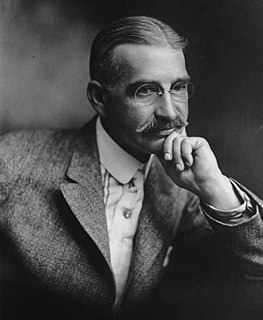A Quote by George Eliot
Childhood is only the beautiful and happy time in contemplation and retrospect: to the child it is full of deep sorrows, the meaning of which is unknown.
Related Quotes
The essential and defining characteristic of childhood is not the effortless merging of dream and reality, but only alienation. There are no words for childhood's dark turns and exhalations. A wise child recognizes it and submits to the necessary consequences. A child who counts the cost is a child no longer.
They say that childhood forms us, that those early influences are the key to everything. Is the peace of the soul so easily won? Simply the inevitable result of a happy childhood. What makes childhood happy? Parental harmony? Good health? Security? Might not a happy childhood be the worst possible preparation for life? Like leading a lamb to the slaughter.
Can any man say with certainty that he was happy at a particular moment of time which he remembers as being delightful? Remembering it certainly makes him happy, because he realizes how happy he could have been, but at the actual moment when the alleged happiness was occurring, did he really feel happy? He was like a man owning a piece of ground in which, unknown to himself, a treasure lay buried.
The Oriental philosophy approaches easily loftier themes than the modern aspires to; and no wonder if it sometimes prattle about them. It only assigns their due rank respectively to Action and Contemplation, or rather does full justice to the latter. Western philosophers have not conceived of the significance of Contemplation in their sense.
I've always assumed that every time a child is born, the Divine reenters the world. Okay? That's the meaning of the Christmas story. And every time that child's purity is corrupted by society, that's the meaning of the Crucifixion story. Your man Jesus stands for that child, that pure spirit, and as its surrogate, he's being born and put to death again and again, over and over, every time we inhale and exhale, not just at the vernal equinox and on the twenty-fifth of December.
The source of inspiration can be any of the things:deep emotional experiences - say, romantic love or spiritual contemplation.I think such rare moments come only when you have total concentration. You are consumed in and by the music. I guess you could say that it is akin to contemplation. In order to reach this desirable state of mind you have to rise above the environment you're in at that particular time - a bad piano, glaring stage lights, or the attitude of the audience. Sometimes the inspiration of the other musicians you're playing with helps you reach this stage.






































